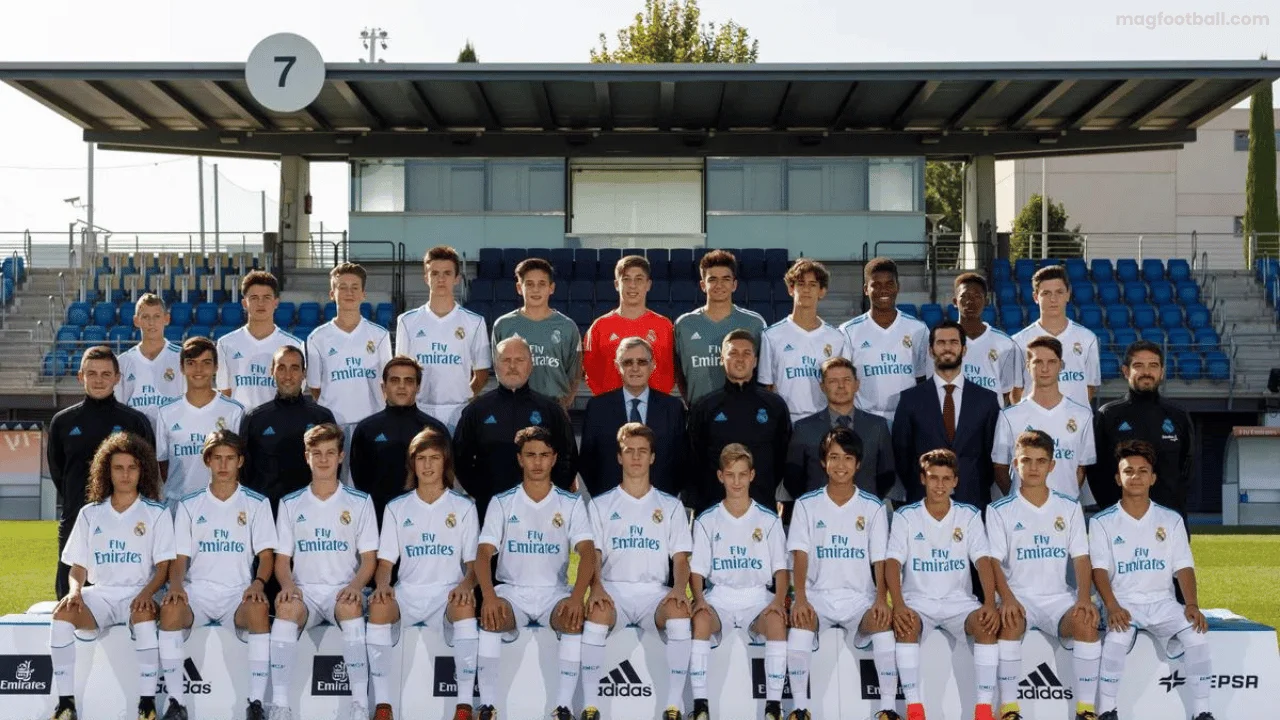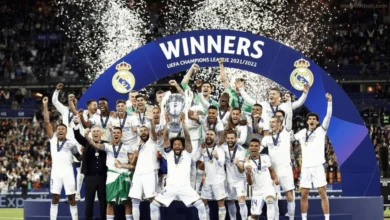Real Madrid’s Youth Academy: How La Fábrica Develops World-Class Football Talent

Real Madrid’s youth academy, famously known as La Fábrica, has long been a crucial element in the success of one of the world’s most prestigious football clubs. While the club is often associated with its big-money signings and global superstars, the backbone of Real Madrid’s enduring legacy lies in its ability to nurture and develop homegrown football talent. La Fábrica has produced a steady stream of world-class players, many of whom have gone on to make significant contributions to the club’s success and beyond.
Table of Contents
In this article, we take an in-depth look at how Real Madrid’s youth academy operates, the strategies they use to develop elite talent, and the key players who have risen through the ranks to become footballing icons. We’ll also explore how La Fábrica’s focus on long-term player development helps Real Madrid maintain its dominance in both Spanish and European football.
The History and Importance of La Fábrica
Founded in 1942, La Fábrica has been a cornerstone of Real Madrid’s philosophy, creating a pipeline of footballing talent that has fueled the club’s success. Unlike other European giants that rely heavily on purchasing established players, Real Madrid has always maintained a dual approach to team-building: combining the best talent from around the world with a commitment to developing youth players through their academy.
The term “La Fábrica,” which translates to “The Factory,” was coined because of the academy’s ability to consistently produce high-quality footballers who can either contribute directly to the first team or succeed at other top clubs. La Fábrica has a rich history of nurturing young players who possess not only technical skills but also the mentality required to compete at the highest level.
The development process at La Fábrica is meticulous, ensuring that players are groomed to fit into Real Madrid’s playing philosophy, which emphasizes attacking football, technical excellence, and tactical intelligence. By cultivating a culture of excellence from a young age, the academy ensures that its players are fully prepared for the challenges of professional football.
The Structure and Operation of La Fábrica
La Fábrica is structured into several age groups, beginning with the Benjamín category (players aged 7 to 9) and culminating in the Juvenil A team, which serves as the final stage before players are promoted to Real Madrid Castilla, the club’s B-team that competes in Spain’s Segunda División B. Each category is carefully overseen by experienced coaches, many of whom have extensive backgrounds in youth development and professional football.
The emphasis at La Fábrica is on holistic player development, which includes not only improving a player’s footballing abilities but also shaping their character and mentality. The academy’s training facilities, located at Ciudad Real Madrid in Valdebebas, offer state-of-the-art resources, including high-quality pitches, medical support, and academic education. This ensures that players are well-rounded individuals capable of handling the demands of professional football both on and off the field.
Key Principles of Youth Development at La Fábrica
La Fábrica’s success is built on several key principles that guide the academy’s approach to youth development:
- Technical and Tactical Development: From an early age, players at La Fábrica are taught the importance of technical ability, ball control, and tactical awareness. Coaches emphasize the need for players to be comfortable in possession and capable of making quick, intelligent decisions on the field. This technical foundation allows players to excel in Real Madrid’s fast-paced, attacking style of play.
- Physical Conditioning: While technical skills are a priority, La Fábrica also places great importance on physical conditioning. Young players undergo tailored fitness programs designed to improve their endurance, strength, and agility. This is crucial for competing in the physically demanding environment of modern football.
- Mentality and Resilience: Real Madrid’s success is built on a winning mentality, and this mindset is instilled in academy players from a young age. La Fábrica places a strong emphasis on mental resilience, leadership, and the ability to perform under pressure—qualities that are essential for thriving in the high-stakes world of professional football.
- Adaptability: At La Fábrica, players are encouraged to be adaptable and versatile. Many academy graduates are trained to play multiple positions, giving them a broader understanding of the game. This versatility makes them more valuable assets to the first team or other clubs when they transition to senior football.
- Long-Term Development: Unlike some youth academies that prioritize short-term success, La Fábrica takes a long-term approach to player development. The focus is on gradually nurturing talent, ensuring that players are ready for first-team action when the time comes. This philosophy allows for a smoother transition from the academy to professional football.
Notable Players from La Fábrica
La Fábrica has produced numerous world-class players who have gone on to become legends at Real Madrid and other top clubs. Some of the academy’s most famous graduates include:
- Raúl González: Widely regarded as one of the greatest players in the history of Real Madrid, Raúl was a product of La Fábrica who went on to score over 300 goals for the club. His leadership and goalscoring ability made him a key figure during Real Madrid’s Champions League triumphs in the late 1990s and early 2000s.
- Iker Casillas: Another legendary figure, Iker Casillas joined Real Madrid’s youth system at the age of 9 and eventually became one of the greatest goalkeepers in football history. His heroics in goal were crucial in Real Madrid’s Champions League victories in 2000 and 2002, as well as Spain’s World Cup win in 2010.
- Dani Carvajal: A modern example of La Fábrica’s success, Carvajal returned to Real Madrid after a season at Bayer Leverkusen and quickly established himself as one of the best right-backs in the world. He has played a key role in the club’s recent Champions League triumphs.
- Guti: Known for his flair and creativity, Guti was a fan favorite at Real Madrid. He spent 15 seasons with the first team and was instrumental in the club’s success during the Galáctico era.
- Álvaro Morata: Although he later moved to clubs like Juventus, Chelsea, and Atletico Madrid, Morata began his career at La Fábrica and played an important role in Real Madrid’s 2017 Champions League win.
La Fábrica’s Role in Real Madrid’s Future
As Real Madrid continues to evolve, the importance of La Fábrica remains undiminished. The academy’s ability to produce high-quality footballers ensures that the club can maintain a strong core of homegrown talent while pursuing global stars. This balance between buying world-class players and developing talent from within has allowed Real Madrid to remain competitive both domestically and in Europe.
Players like Marco Asensio, Lucas Vázquez, and Nacho Fernández are recent examples of academy graduates who have made significant contributions to the first team. Additionally, exciting young talents like Miguel Gutiérrez, Antonio Blanco, and Sergio Arribas are emerging from La Fábrica and are expected to play key roles in the club’s future.
Conclusion: The Legacy of La Fábrica
Real Madrid’s youth academy, La Fábrica, stands as one of the most successful and influential football academies in the world. Its commitment to producing technically gifted, mentally strong, and tactically intelligent players has been crucial in shaping the club’s history and ensuring its continued success. As Real Madrid looks to the future, the development of homegrown talent from La Fábrica will remain a central pillar of the club’s strategy, allowing them to compete at the highest levels of football for years to come.
The academy’s long-term approach to player development, combined with its ability to produce world-class footballers, ensures that Real Madrid will continue to dominate both Spanish and European football, with La Fábrica providing the foundation for future triumphs.






